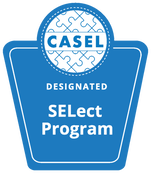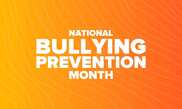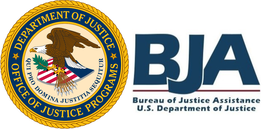
CARING SCHOOL COMMUNITY SCHOLARSHIPS
Apply NOW, Implement in the 2024 - 2025 School Year!
Applications Open!!! | Receive free materials and PD for a schoolwide approach to whole child skill development! | Grades K - 8
One of our project goals is to provide resources and support for schoolwide programs focusing on whole child skill development. As part of these efforts, SSoM is offering Caring School Community Schoolwide Program Scholarships to MT schools serving grades K - 8. Collaborative Classroom’s Caring School Community program and professional learning supports schools with integrating whole child skills with an emphasis on the proactive teaching of social awareness, relationship-building, and problem-solving skills to build positive classroom and school communities.
- Find COMPLETE DETAILS, including application instructions, resources, and FAQ
- View the Caring School Community Brochure
- Printable Caring School Community Scholarships Brochure
- Watch the Caring School Community, 2nd Ed., Overview Video (5:33)

OCTOBER IS NATIONAL BULLYING PREVENTION MONTH
October was first declared as National Bullying Prevention Month in 2006. Since then, October has been a time to acknowledge that bullying has devastating effects on children and families such as school avoidance, loss of self-esteem, increased anxiety, and depression. Bullying can occur in multiple ways. It can be verbal, physical, through social exclusion, or via digital sources like email, texts, or social media. Unlike mutual teasing or fighting, bullying occurs when one person or a group of people is perceived as being more powerful than another and takes advantage of that power through repeated physical assaults, threats of harm, intimidation, or by purposefully excluding a person from a valued social group. Being bullied can severely affect the person’s self-image, social interactions, and school performance and can lead to mental health problems such as depression, anxiety, and substance use, and even suicidal thoughts and behaviors.
October was first declared as National Bullying Prevention Month in 2006. Since then, October has been a time to acknowledge that bullying has devastating effects on children and families such as school avoidance, loss of self-esteem, increased anxiety, and depression. Bullying can occur in multiple ways. It can be verbal, physical, through social exclusion, or via digital sources like email, texts, or social media. Unlike mutual teasing or fighting, bullying occurs when one person or a group of people is perceived as being more powerful than another and takes advantage of that power through repeated physical assaults, threats of harm, intimidation, or by purposefully excluding a person from a valued social group. Being bullied can severely affect the person’s self-image, social interactions, and school performance and can lead to mental health problems such as depression, anxiety, and substance use, and even suicidal thoughts and behaviors.
|
The National Child Traumatic Stress Network (NCTSN) has compiled a list of helpful resources for parents and caregivers, children and teens, mental health providers, educators and school staff, and policy makers.
|
|
FOR MORE
INFORMATION, PLEASE CONTACT: |
Jennifer Graham, Project Facilitator | [email protected]
Melissa Rosenstein, Project Facilitator | [email protected] Melissa Tovaas, Project Director | [email protected] |


